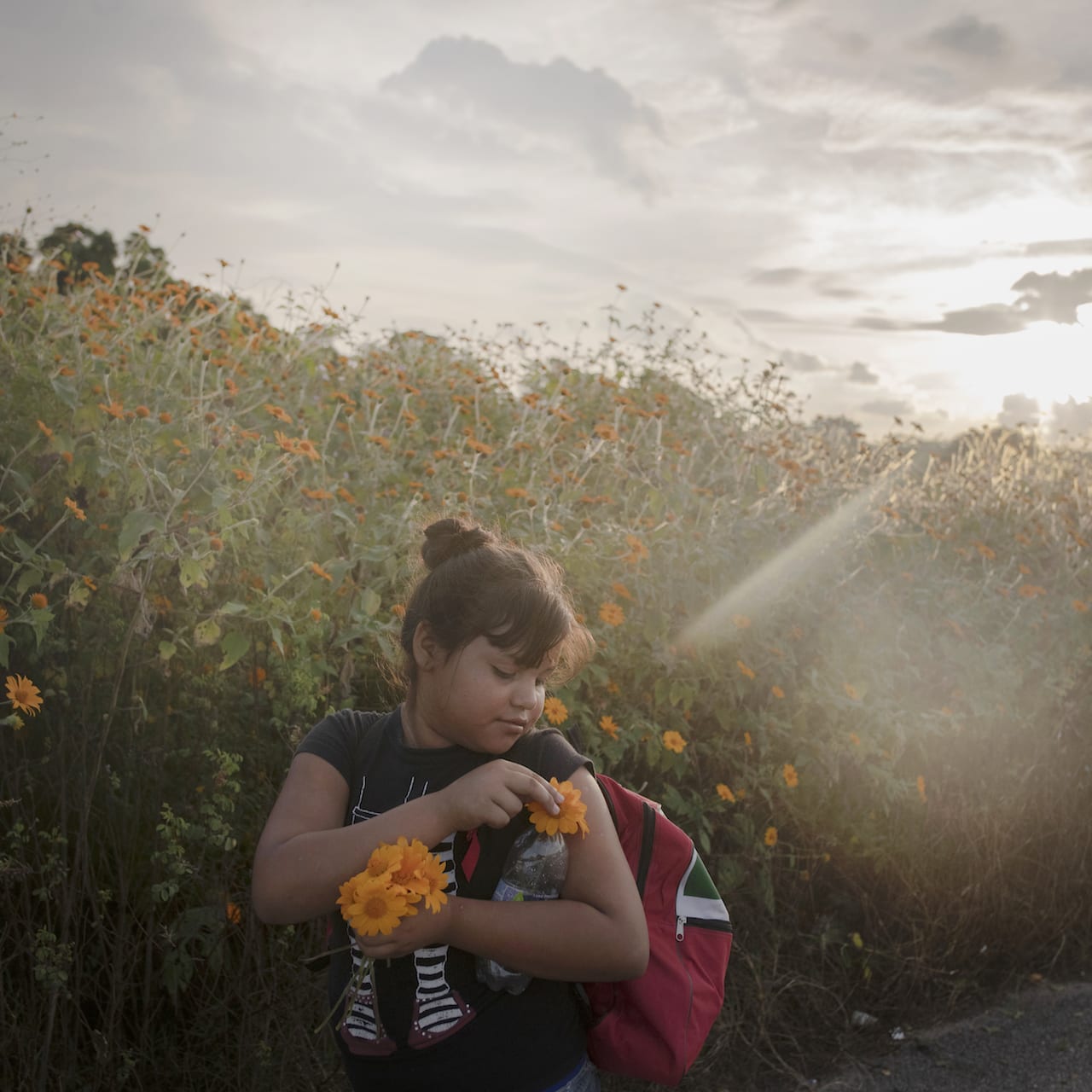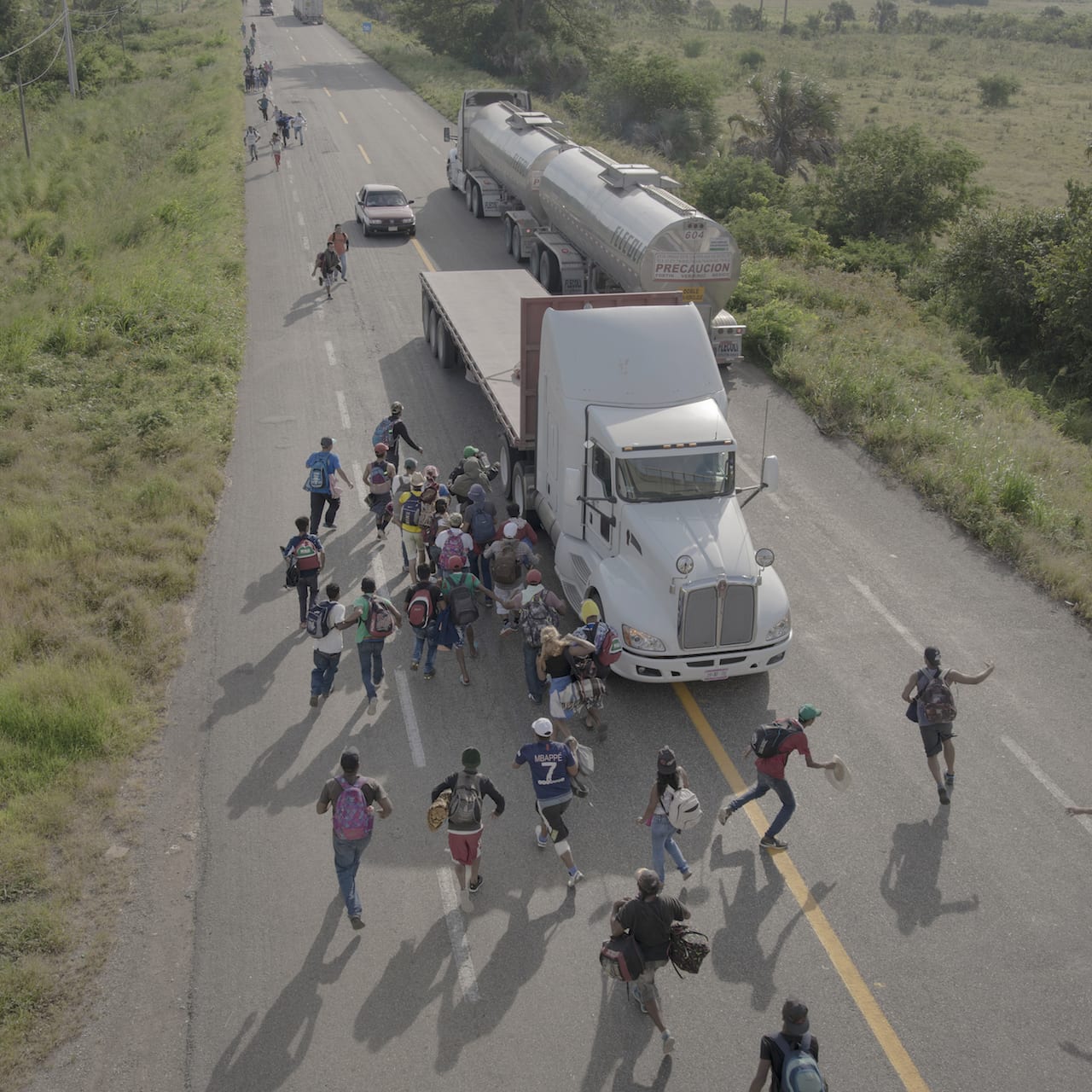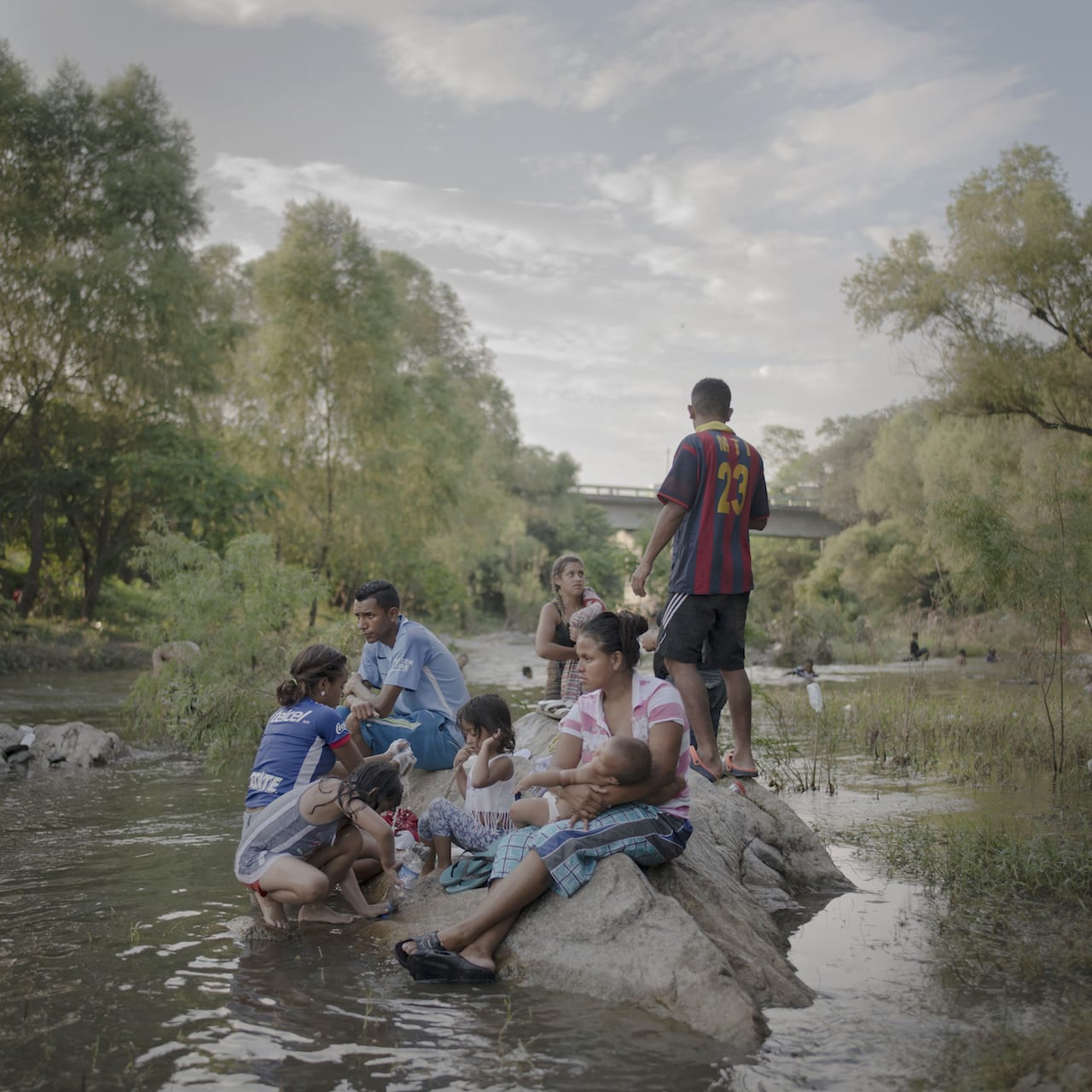“I think that today, we need to be able to tell stories in differently, to be able to connect to as many viewers as we can,” says World Press Story of the Year-nominated Pieter Ten Hoopen. “We’re heading towards a new phase. Before, a single image could become iconic for a whole war, or a situation of despair. Now it’s different, and I think we need to be able to tell stories in a more sensitive way.”
Hoopen’s nominated photographs for World Press Story of the Year follow the movement of thousands of Central American migrants who joined a caravan heading to the United States border between October and November 2018. It is estimated that over 7,000 people – at least 2,300 of them children – joined the trek, making it the largest caravan of migrants in recent history, according to UN agencies.
Most of the migrants learned about the caravan through social media, television reports, or word of mouth. Conditions along the way were reported to be gruelling; UN officials said that many travellers didn’t realise the risks involved, and the exhausting walks that were up to 30km a day, often in hot temperatures above 30℃ [86°F].
It was a last-minute decision for Hoopen, who is based in Stockholm, to travel to Mexico; he stayed there for six days and worked almost all hours of the day to make the most of his time. “It is more of an overview of the situation,” explains Hoopen. “It reflects a kind of mental state of mind inside the caravan.”

Hoopen has worked as a photographer for over 15 years, transitioning between editorial work, personal projects, and commercial assignments. He has won two World Press Photo awards in the past – in 2008 he won first prize in the category Daily Life stories, and in 2010 he won 2nd prize and an honourable mention in the Portrait section. His reportage has been published in the New Yorker, New York Times Magazine, and Le Monde, and so far he has published two personal projects as books.
Hoopen was pleased to find out that the jury commended his unique approach to reporting spot news. “Through the years I have changed my style to reach out to people today,” he says, explaining his decision to shoot in 6×6 format. “I was wondering whether I’d made the right decision, I had an internal struggle at the time. But I’m glad I did it, because it creates a different atmosphere which I thought was really important.”
Two years ago, Hoopen co-founded Civilian Act with his colleague Stefan Bladh, a production company that uses visual storytelling to help companies and NGOs grow. Migrant Caravan is part of larger project the agency is working on called Love Stories, which aims to visualise the experience of being a refugee all over the world; the final phase is due to be completed in 2021.
Hoopen set up the agency after seeing the complicated reactions to the refugee crisis in Europe, and especially the rise of extreme right-wing media. He wanted to create stories about people who had met before and during the process of migration, as well as about what it means to flee home, whether because of climate change, war, sexual discrimination, or economic imperatives.
But rather than making photographs of the gruelling side of migration – the kinds of image that tend to saturate popular media outlets – Hoopen chose to focus on families, relationships, and small moments of joy, such as a girl collecting bright flowers, or the protective embrace between a father and his sleeping toddler.
“For me personally, it would have been easier to create a story built on fear that focused on negative experiences, but I wanted to look for empathy in the work, and try to challenge myself,” says Hoopen. “The idea was to create a body of work using a topic that everyone can relate to, which is love.”
pietertenhoopen.com www.worldpressphoto.org


